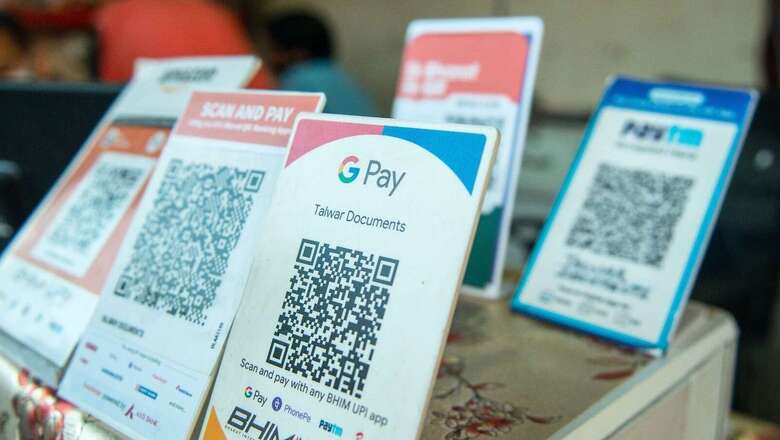
views
Digital payments or online payments are the norm now. With things like net banking and UPI, sending money has become the easiest and quickest ever. Now, as things have become more and more easy for us, it has also opened a lot of new tricks for scammers who now have newer and easier ways of defrauding people online. While the scare of getting duped always looms when making payments online, there are a few things that users can keep in mind to ensure that they are safe and an easy target for scammers. Here are a few things that you can keep in mind to keep yourself safe while using UPI or net banking.
1. Never Share Your UPI PIN/ Net Banking Password With Anyone
One of the most important things to remember is that you should not share your four or six digit UPI PIN or your net banking password with anyone. With UPI-enabled apps, the last and final step for going ahead with the payment is the PIN, so one should be as secretive of their UPI PIN as their ATM PIN. Same goes with net banking. With net banking, your password and net banking ID are the two private credentials. However, the net banking ID can be bypassed with your registered mobile number on many banks net banking portals, so your password is the most integral and you should keep it as private as possible. Often, people often get calls from scammers posing as bank representatives and asking for your card/ bank account details including PINs, OTPs, passwords and such. So make sure you never share this sensitive information with anyone.
2. Always Verify UPI ID Before Sending Money
This works for both sending and receiving the money. While sending, it is highly advised to double-check the receiver’s UPI ID and phone number. If you send the money to the wron person via UPI, there is no way of getting it back, unless the receiver agrees to give it back. While receiving money as well, make sure you share the correct UPI ID. This will help you from avoiding the wrong transactions and sending your money to someone who is not intended to get it.
3. Don’t Click On Unverified Links
It is a common phenomenon where people get scammed just because they clicked a link they recevied on their email or via SMS. Users are strongly advised against clicking any unverified or fishy links that they receive. These links are usually used by attackers to hack into your phone and steal your data which could include banking passwords and PINs. As mentioned above, people often get calls from scammers posing as bank representatives and asking for your card/ bank account details including PINs, OTPs, and such. At times, they even ask you to download an app or register via a fishy link that they have sent.
4. Always Have Proper Security On Your Devices
Always keep your device locked, especially if you are in a new place where you don’t know a lot of people. There are many important apps (apart from banking and payment apps) on our devices that can give scammers all the data they need without having to get into the banking or payments app in your phone. For example, email or apps like DigiLocker which hold all your important information are something you don’t want the wrong people to get their hands on. Which is why, it is also very important to keep your phone safely locked at all times.
If you want to go an extra mile, many Android phones give users the option to lock apps separately, so you can put an extra lock on your banking, payments, email, and other important apps to have that extra layer of security.
5. Website Security
At times, shopping from a new or unknown website can lead to fraud. For example, you are buying a rare collectible item which you have found after searching for a while, but it is a website you have not heard of. Now, if it is a fraudulent website, it is likely that the “net banking" option will lead you to a fake website that mimics your bank’s website and will take all your passwords and banking IDs that you add to make the payment. Which is why, it is important to make sure that any of the bank website that you visit is encrypted with “https" and a lock icon at the start of a URL. If the URL starts with just “http" and not “https," it means that the page is not secure.
Read all the Latest Tech News and Breaking News here




















Comments
0 comment